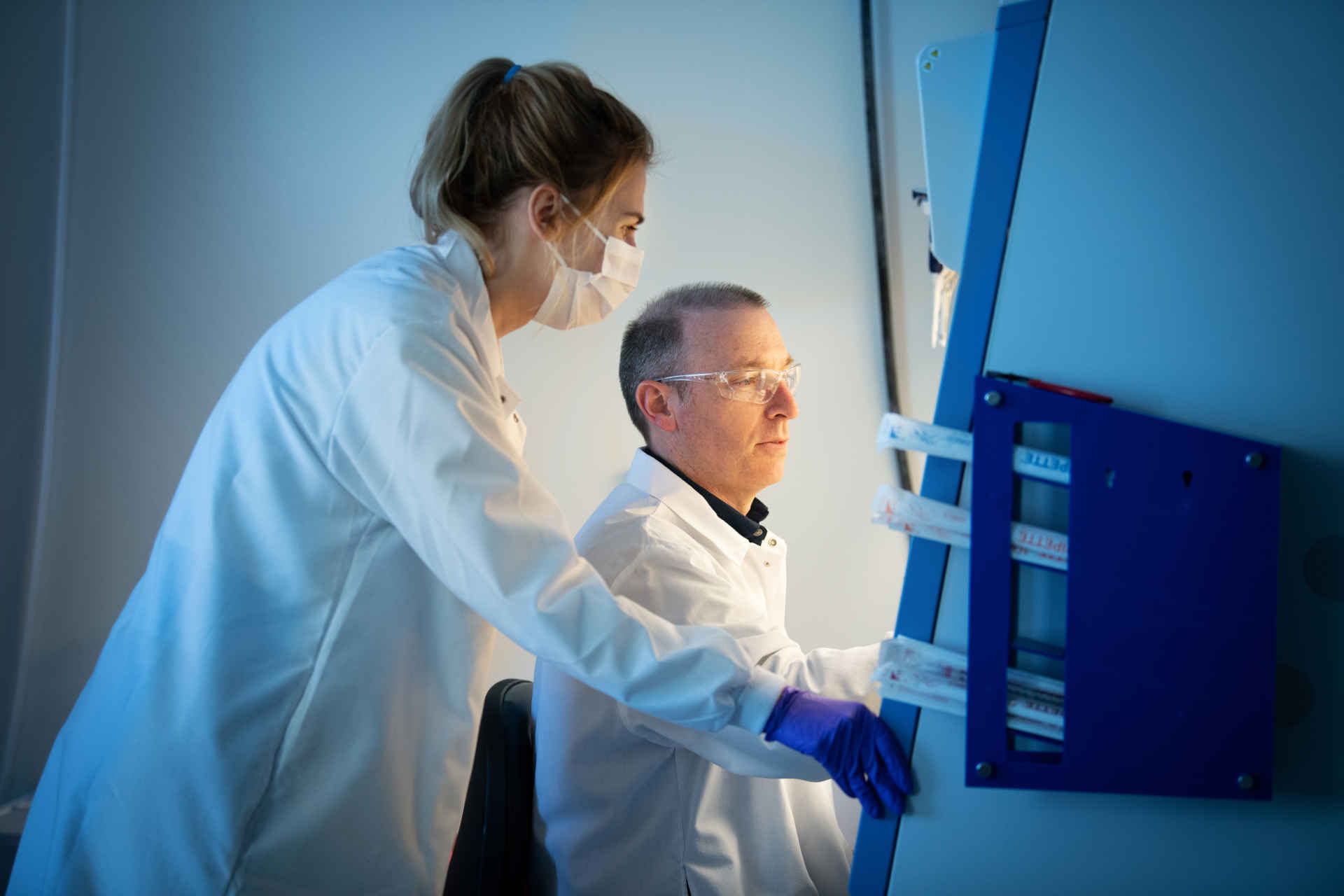The DICE Approach
Our approach to drug discovery and development leverages the capabilities of our DELSCAPE platform to optimize the design of small molecule therapeutics to modulate protein-protein interactions (PPIs) as effectively as systemic biologics. This enables us to discover and develop orally dosed medicines in a therapeutic area dominated by injectable medicines.
.
Opportunity
Central to our process is the identification of targets with strong mechanistic or clinical validation—and in many cases, commercial validation. There are numerous examples of effective injectable treatments for autoimmune and inflammatory diseases where an oral medicine would greatly benefit patients.
This target validation greatly reduces the biology risk associated with developing new drugs and drives our pursuit of orally dosed small molecules that can act on established mechanisms.
Feasibility
Historically, inhibition of PPIs by small molecules has been challenging because interactions between proteins usually involve large, complementary binding areas that lack molecular features that would enable small molecules to potently and selectively disrupt them.
We have successfully identified small molecule inhibitors of PPIs that act away from the PPI interface by perturbing the structure of one of the PPI partners. We apply multiple approaches to identify opportunities that favor potent and selective binding of small molecules that can alter protein structure and inhibit protein function. Through our approach, we prioritize potential targets with structural features that make them ideal candidates for small molecule inhibition and leverage our proprietary DELSCAPE platform to discover novel therapeutics.
Medicinal Chemistry on a Massive Scale
Our DELSCAPE platform leverages DNA-encoded libraries (DELs) in a novel way that we believe improves our ability to prosecute historically difficult targets such as PPIs with oral small molecule inhibitors.
Whereas DEL has traditionally been used as a hit-finding approach with a high premium on highly diverse libraries containing tens of billions of chemicals, we have found a very different approach to be highly effective in the identification of lead compounds for the inhibition of PPIs. We build customized DELs for each target we pursue, incorporating known binding elements into our design.
These seed elements may have poor potency or selectivity, but can greatly enhance our ability to find hits with improved properties in these focused libraries. With our proprietary approach, we generate smaller, targeted libraries, typically between 100,000 and 1 million discrete compounds, and obtain data that enables both quantitative and qualitative assessment of a landscape of small molecule hits.
Our approach can extend well beyond binding optimization to further produce insights into functional activity and selectivity. We think of this process as performing medicinal chemistry on a very large scale, in parallel, and it is what allows us to accelerate this phase of drug discovery against difficult PPI targets.

Unlocking the potential of oral medicines
We are developing a growing pipeline of high-impact oral therapeutic candidates for large, chronic disease areas in immunology.